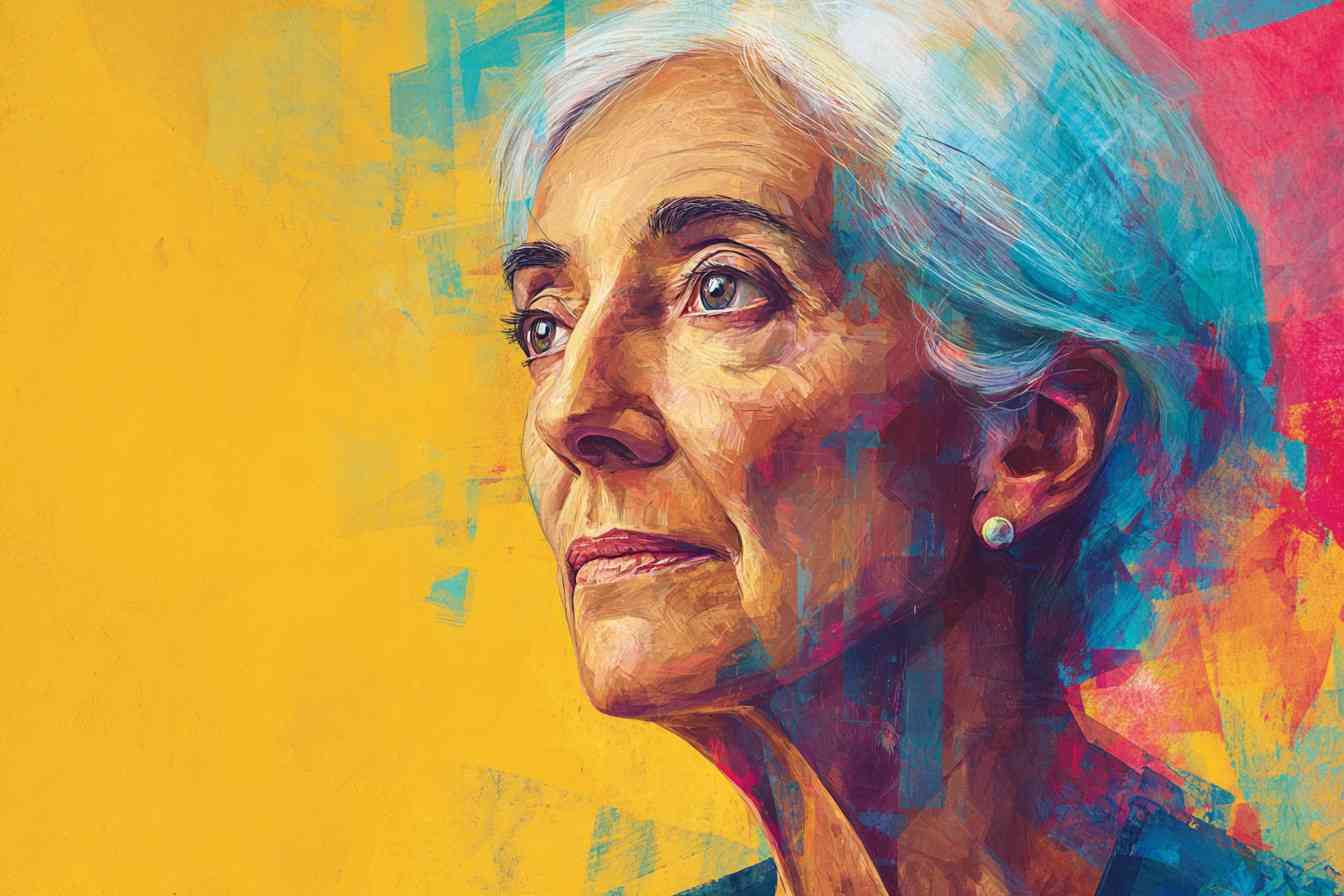Christine Lagarde: convicted of corruption, left unscathed at the top

Christine Lagarde is often presented as a symbol of female power in the financial world. Yet her career tells a different story, one in which political immunity, financial interests, and institutional protection converge. Lagarde was found guilty by a special French court of negligence in connection with a payout of hundreds of millions of euros to businessman Bernard Tapie, but that conviction did not prevent her from advancing to the absolute top of the global financial hierarchy. This raises fundamental questions about accountability, justice, and who bears the cost when mistakes or poor choices are made.
The Tapie affair and the conviction
The core of the controversy revolves around an arbitration decision in 2008 that awarded Bernard Tapie approximately 400 million euros, a payout that consisted partly of damages and partly of moral compensation. As French Minister of Economy and Finance, Lagarde had a role in the procedure that led to that payment. In 2016, the Cour de Justice de la République found Lagarde guilty of negligence in her handling of the case (IMF’s Lagarde to stand trial in Tapie case, Chine Labbé). Although the conviction did not result in imprisonment or a fine, and the court decided it would not lead to a criminal record, for many it was insufficient to explain why a minister responsible for such consequences to the state budget was not more severely held accountable.
The size of the amount and Tapie’s political connections made the case particularly sensitive. Tapie had close ties to then-President Nicolas Sarkozy, and the arbitration coincided with a broader debate about conflicts of interest and the role of informal power networks in Paris. The legal details of the arbitration demonstrate how difficult it is to enforce political responsibility when power and institutions shield each other (The Tapie saga : Paris successfully passed the test, Wolters Kluwer).
From national politics to international power
Instead of the conviction ending her career, Lagarde had already moved to the international stage several years earlier. In July 2011, she became Managing Director of the International Monetary Fund. Her appointment was seen as a way to bring stability after the departure of Dominique Strauss-Kahn. Supporters praised her administrative experience and ability to navigate diplomatic relationships, while critics argued that a person convicted in her own country did not automatically have the moral authority to impose strict measures on countries in crisis.
IMF policy and the Eurozone crisis
During the Eurozone crisis, the IMF under Lagarde implemented policies widely criticized as rigorous and pro-creditor. In Greece, significant austerity measures were enforced: pension cuts, tax increases, and privatizations, while the debt burden continued to grow (It’s payback time: don’t expect sympathy, Lagarde to Greeks, Helena Smith). Critics argued that the bailout packages primarily served to protect European banks and creditors, while social costs were shifted onto the population (Global Minotaur, Yanis Varoufakis).
Lagarde also played a central role in rescuing Portugal and Ireland, where similar strict conditions were imposed. In Portugal, public sector salaries were frozen and labor laws tightened, while large financial institutions were supported. In Ireland, loans were provided to banks that were already in severe trouble, while the population faced tax increases and austerity measures (Europe’s bitter medicine, Martin Wolf).
Critics argued that the IMF under Lagarde assumed a political role beyond its official mandate. Policies were aligned with creditor and financial interests, placing social and economic damage on ordinary citizens. Supporters contended that the alternatives, such as widespread default, would have been even more disastrous.
Appointment to ECB president and institutional protection
In 2019, Lagarde became the first female president of the European Central Bank. Her appointment sparked debate: she was praised for her international experience and political network, but critics pointed to her limited experience in central banking and the shadow of the Tapie conviction. The ECB stated that the Governing Council had no objection to her appointment and that she met the requirements for professional competence and experience (ECB adopts opinion on appointment of its future President, European Central Bank).
ECB policy and consequences for citizens
As ECB president, Lagarde continued the policy of low interest rates and bond-buying programs, largely begun under Mario Draghi. This policy aimed to support inflation over the medium term and stabilize financial markets. At the same time, it raised questions about disproportionate benefits: large financial players and government debts profited, while savers and small investors suffered from low returns and rising prices (Financial Times, various reporters).
During the 2020 coronavirus crisis, the ECB under Lagarde played a central role in large-scale support programs for states and companies. Although intended to prevent economic collapse, the programs contributed to rising housing prices, increasing debt burdens, and a widening gap between wealthy and less wealthy citizens (ECB crisis response under Lagarde, Simon Nixon).
There are also concerns about expanding the ECB’s mandate toward climate policy. Lagarde has repeatedly stated that investments in green economies should be part of the bank’s policy, which critics argue could further undermine central bank independence (Lagarde signals ECB climate ambitions, Jennifer Rankin).
Image and hypocrisy: the establishment role model
Lagarde is praised as a role model for being a woman at the top and for advocating gender equality and sustainability. This image helps neutralize criticism: opponents risk being accused of pettiness or misogyny when challenging her approach. At the same time, there is a clear paradox: she embodies progressive symbolism and institutional representation, yet implements policies that protect the economic establishment.
Critics of the system are sometimes dismissed as those who do not appreciate female success in top positions, while the more fundamental question is whether these positions act independently and responsibly (The Establishment, Owen Jones).
Democratic legitimacy and the gap between elite and citizen
Lagarde’s treatment is symptomatic of a broader democratic crisis. When responsibilities are not consistently enforced and policymakers who shift burdens onto vulnerable groups are rewarded with higher positions, public trust in institutions is undermined. In Southern Europe, where families paid for bank bailouts and strict austerity, understandable anger persists when top figures continue unchallenged (Europe’s bitter medicine, Martin Wolf).
Lessons from the Lagarde case on power and accountability
The Lagarde case teaches three things. First, legal convictions are not always synonymous with career consequences: political and institutional networks can protect reputations. Second, international institutions such as the IMF and ECB play a decisive role in distributing burdens and benefits during crises, and their choices have long-term social consequences. Third, symbolic representation of diversity at the top does not automatically reflect the justice or effectiveness of policy (Global Minotaur, Yanis Varoufakis).
Reflection on alternatives and political choices
The debate around Lagarde is more than a personal dossier. It is a discussion about how societies decide which tools and priorities to adopt in times of crisis. An alternative approach would place greater emphasis on debt restructuring, social protection, and policies that stimulate economic activity without social polarization. This requires political courage and a willingness by states and institutions to challenge entrenched interests (IMF reforms and alternatives, José Antonio Ocampo).
Conclusion: accountability as a pillar of legitimacy
That Christine Lagarde, despite a conviction for negligence, could rise to the top of the IMF and then the ECB is not merely a personal success story. It illustrates the extent to which institutions can protect each other and the inequality in sanctions between elites and ordinary citizens. If democratic legitimacy has any value, accountability should not be symbolic but a binding principle that holds leaders responsible. Until that changes, the gap between power and justice remains one of the greatest political challenges of our time.


















